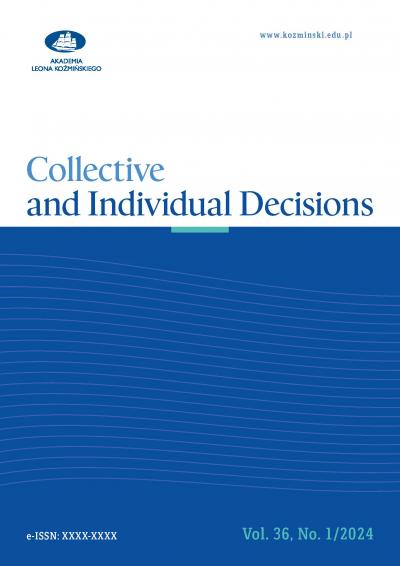Schelling games, Kuran dominos and electoral coalitions. Non-standard game-theoretic models of collective action
Marek Kaminski
University of California
12/2014 (24) Decyzje
DOI 10.7206/DEC.1733-0092.62








